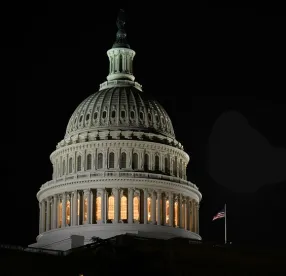Parties will now be able to bring a lawsuit in federal court to protect their trade secrets under the Defend Trade Secrets Act (DTSA), which was passed by Congress on April 27, 2016, and signed into law on May 11, 2016. By providing a federal forum, DTSA moves trade secret litigation a step closer to the uniformity afforded to other types of intellectual property such as patents, trademarks and copyrights.
Non-criminal trade secret misappropriation is currently governed by state law. Although the Uniform Trade Secrets Act (UTSA) has been adopted by all states except New York and Connecticut, interpretations of key provisions of the UTSA can vary significantly across state lines. This leads to uncertainty over the protections that will be afforded to trade secrets and often results in increased legal expenses for companies that operate across state lines. The DTSA creates a new federal right of action for actual or threatened misappropriation of trade secrets and affords a three-year statute of limitations starting from the date the misappropriation was discovered or should have been discovered. However, DTSA will not preempt state law on trade secrets.
Injunctive relief and monetary damages are both available under the new law. Damages for unjust enrichment are available in situations where actual loss damages do not adequately compensate the plaintiff for the misappropriation. Injunctive relief also can be replaced with a reasonable royalty for ongoing use of a trade secret in situations where it would be inequitable to issue an injunction.
A controversial provision of the DTSA authorizes seizure of allegedly misappropriated trade secrets. This remedy is reserved for extraordinary circumstances, although it is not yet clear what will be considered extraordinary. The same provision authorizes damages in the form of enhanced profits and attorneys' fees for victims of wrongful seizure.
Trade secret litigation is often initiated by an employer against an employee who wants to leave and find new employment. As a result, the DTSA contains two key provisions of which employers should take special note.
-
The first is whistleblower immunity, which creates a safe harbor for employees who turn trade secrets over to the government or to an attorney for the purpose of allowing the government to investigate suspected illegal activity. Immunity is also afforded for communications made to the court under seal.
-
The second is a requirement that employers inform employees or independent contractors of this immunity in any agreement governing the use of trade secrets or confidential information. Alternatively, employers can reference a policy that informs employees or independent contractors of the immunity provided under the DTSA. Failure to provide this information can preclude employers from recovering certain types of damages in subsequent misappropriation litigation.
Suggested Actions
The DTSA is effective as of May 11, 2016, and applies to any misappropriation occurring on or after that date. All employers should immediately assess whether they need to revise trade secret and confidentiality agreements to comply with DTSA because the notice provision will apply to all agreements entered into or revised on or after May 11, 2016. Additionally, all trade secret owners are encouraged to establish and periodically revise their policies to safeguard their trade secrets.



 />i
/>i

